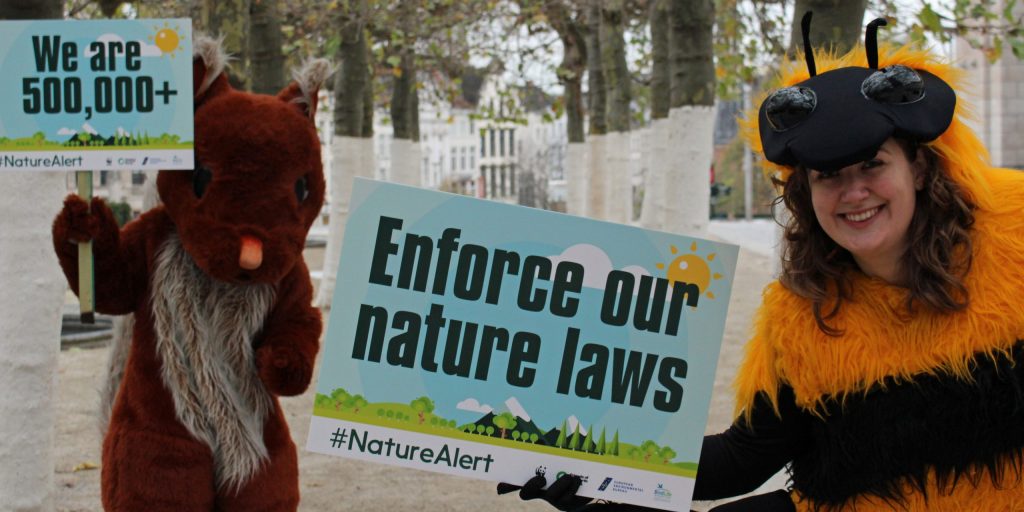Following the success of the #NatureAlert campaign to save Europe’s strong nature protection laws, the European Commission has today issued plans to put the laws into action.
The proposal addresses important gaps in the implementation of the nature laws, for instance the long-overdue completion of the Natura 2000 network of protected nature sites, and the adoption of necessary conservation measures for all sites. Regrettably, there are numerous gaps in the current action plan as it stands.
Whilst Friends of the Earth Europe welcomes the 15 steps announced by the Commission, we call for much greater action to be taken – by the Commission, Member States and local authorities – in order to halt the loss of nature by 2020. Europe is currently far off track on this target.
Robbie Blake, nature campaigner for Friends of the Earth Europe, said: “Nature is a right, not a privilege – when nature thrives we do too. Today’s Action Plan takes some small steps to improve the perilous shape of European wildlife, but it lacks teeth and is silent on the need to save bees and tackle industrial farming – nature’s biggest killer.
“Access to nature is proven to be good for our health and wellbeing, so member states and local authorities now need to go above and beyond this plan if we are to have a chance of stemming wildlife loss and protecting nature for all.”
The power of #nature
NEW VIDEO & report: how nature is vital for our health & wellbeinghttps://t.co/OTcnjpRtDu#RightToNature#NatureAlert pic.twitter.com/D55v832Bq5— Friends of the Earth (@foeeurope) March 21, 2017
Highlights of what’s in the Commission’s plan:
- Completion of designating Natura 2000 protected sites;
- Establishing management plans for all protected nature sites and most threatened species – currently many Member States are lagging on ensuring good management of protected nature sites;
- Improved knowledge and monitoring of nature areas using modern technology;
- Agreeing roadmaps with national and local authorities to tackle implementation gaps;
- Knowledge exchange of good practice and communication and outreach to engage citizens in Natura 2000.
Nevertheless, the mildly-worded action plan lacks teeth to stem the decline in nature, in a number of important areas:
- Bees: no plan to tackle the decline of bees and pollinators in a coherent way across policies;
- Illegal activities: no teeth to clamp down on the all too frequent illegal developments that damage protected nature, for example Bulgaria’s stunning Kresna Gorge threatened by a planned EU motorway, or the threat to Northern Ireland’s Laugh Neigh, or Cyprus’s turtle beaches.
- Agriculture: The plan lacks strong enough measures to stop the damage to wildlife from industrial farming, nature’s biggest killer;
- No plans for fully connecting up sites rich in nature (a Trans-European Network for Green Infrastructure (TEN-G));
- Investment: Whilst the plan allocates a small amount of extra money for conservation projects, this is nowhere near enough to cover the gap in securing Natura 2000 and improve the state of nature.
It is now key that the Commission, Member States and relevant authorities and stakeholders engage in the implementation of this action plan and go beyond, if we are to have a chance of halting Europe’s biodiversity loss.







